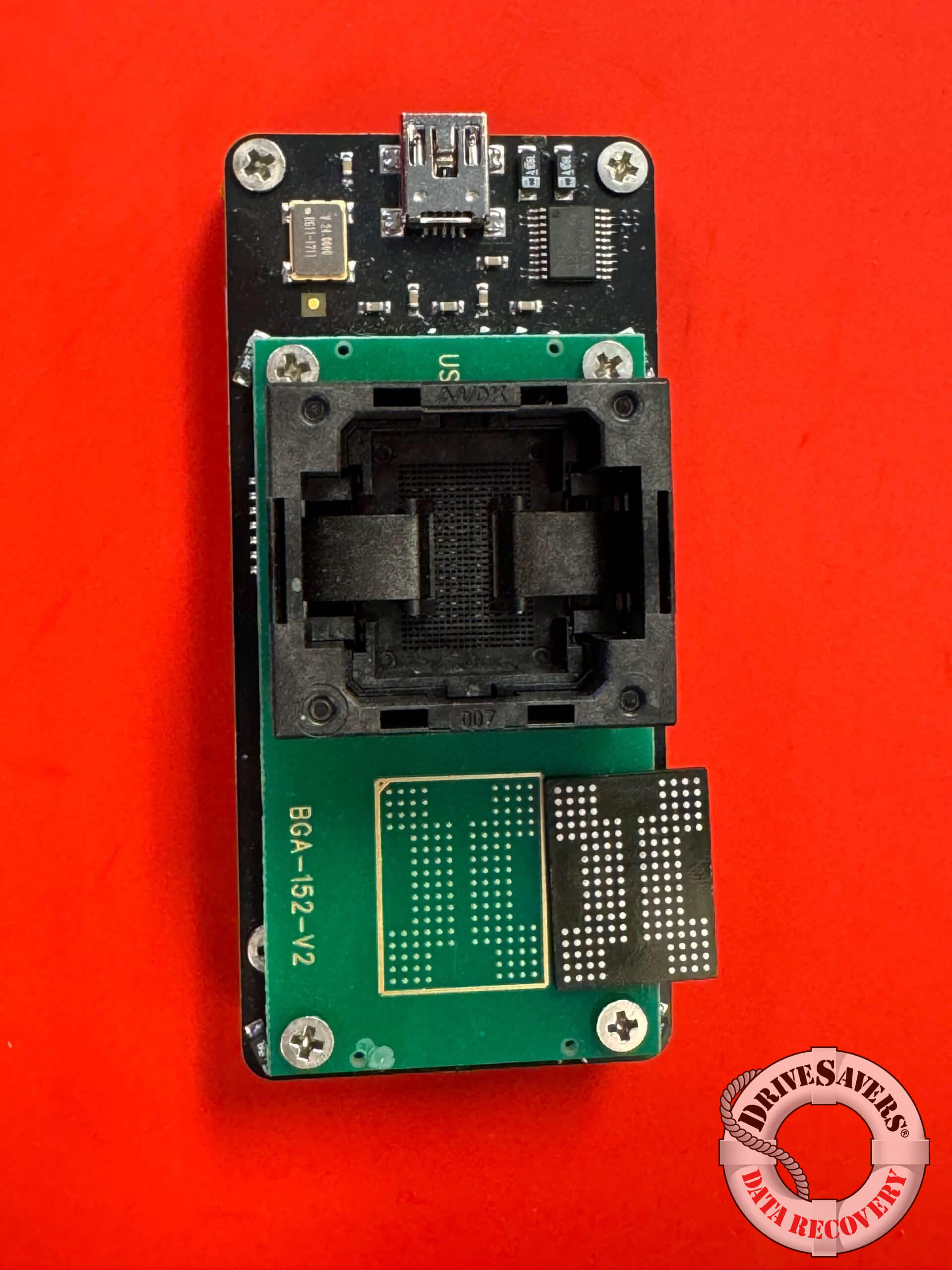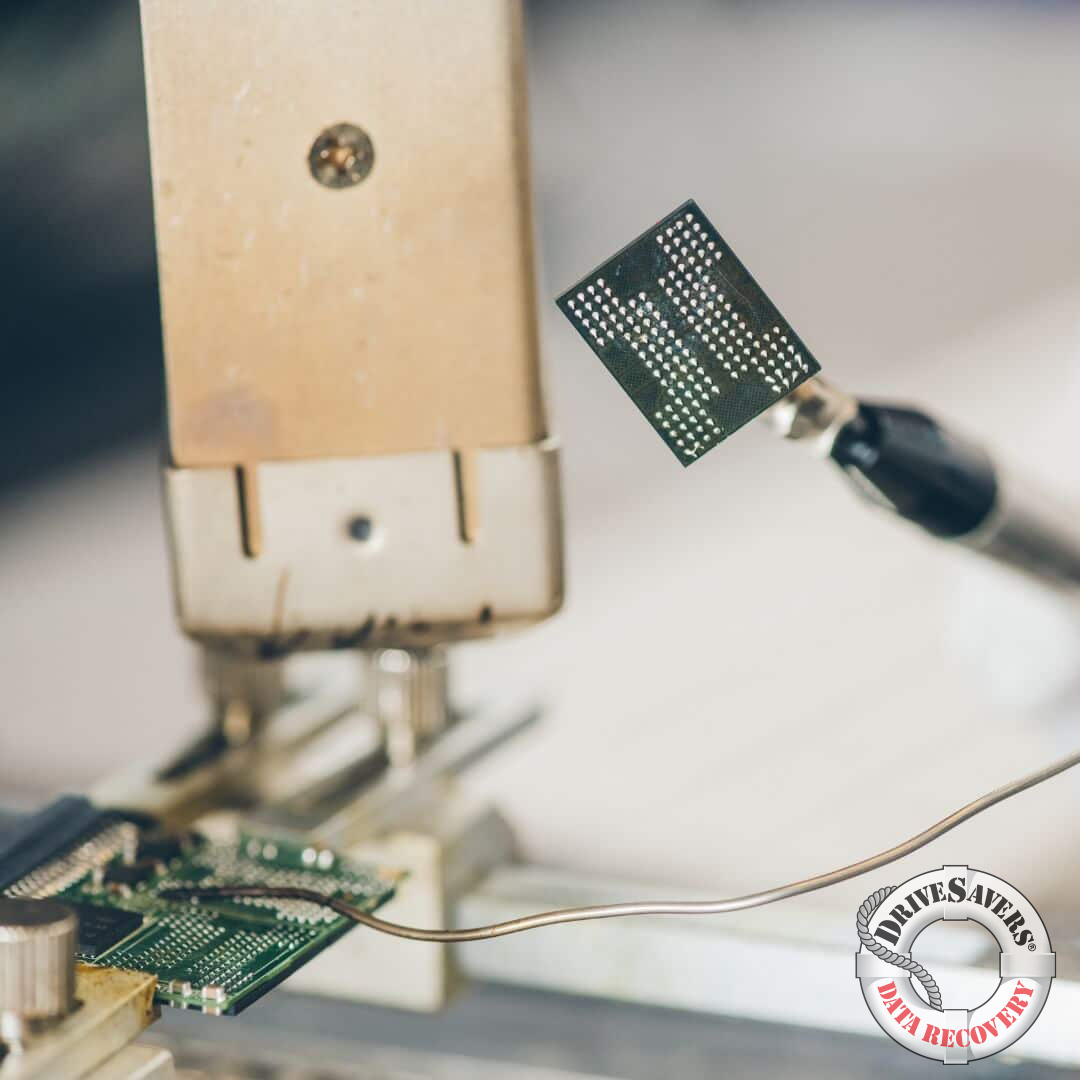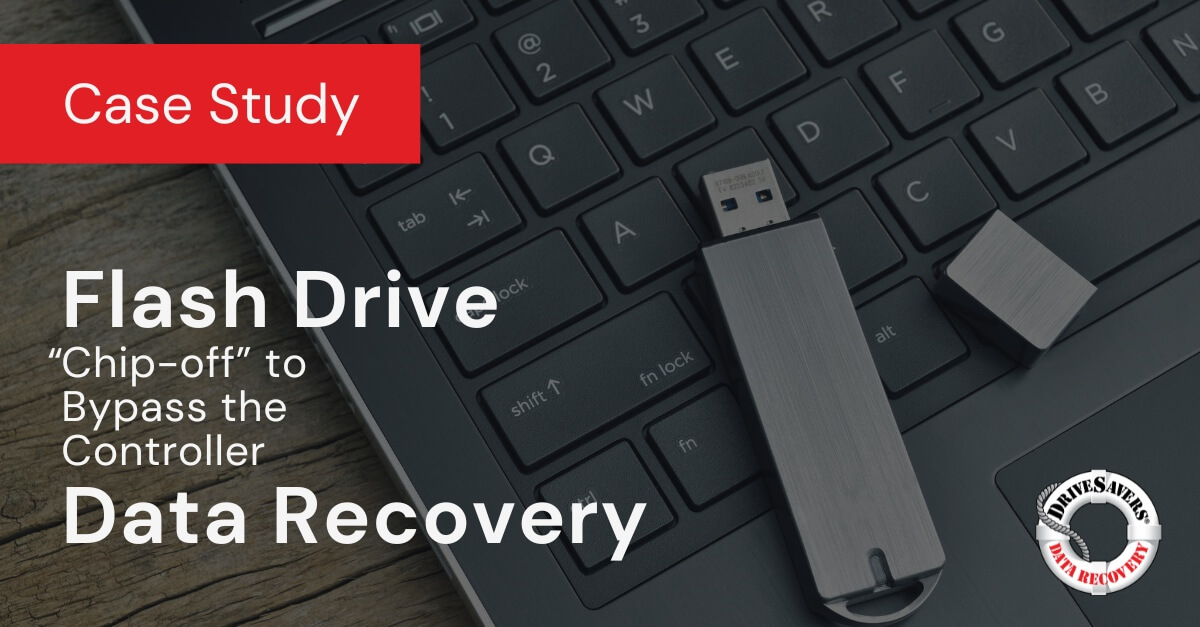Case Study: Flash Drive Data Recovery
The 64GB Lexar flash drive sustained electrical damage when it was bumped while still plugged into the laptop. The sudden force caused electrical components in the device to fail, affecting the internal controller that manages the writing and accessing of data stored on the NAND flash memory. This rendered the drive unreadable.
Despite being a common issue, most local repair shops lack the advanced tools and knowledge necessary to recover data from such failures, leaving customers with seemingly no options for recovery.
From the very beginning, my first phone call, the customer service was exceptional. Their technical abilities were really, really professional and knowledgeable, and when I had to go back with some questions, They followed through and they really did a good job.–Barbara Wellington, Retired Executive Assistant

When a flash drive suffers from an electrical failure, it can be due to damage to the controller chip, which is essential for the data on the drive to be accessed with any system. In this case, the impact against the door frame likely caused the controller chip to fail, making traditional data recovery techniques ineffective.
To bypass the failed controller, the data recovery engineers at DriveSavers performed a “chip-off” procedure. This involves physically removing the memory chips from the damaged drive and accessing the raw binary data directly from the flash memory itself. This method allowed the engineers to use a series of mathematical operations to reinterpret the raw data into recognizable files without relying on the device’s broken controller.
Using advanced, highly specialized tools and techniques, DriveSavers was able to extract data from the memory chip successfully. Despite some challenges related to NAND flash storage corruption, the team managed to recover over 18GB of data from the damaged flash drive.
The recovered data included photos from Barbara’s vacations, family gatherings, and personal moments. It also included scanned images of older photographs dating back several decades.
The data was returned to Barbara on a new, fully functional flash drive. The files were organized by type and date, making it easy for Barbara to locate her treasured memories.

When the 64GB Lexar flash drive suffered electrical failure after a physical impact, the damage left the drive non-accessible, requiring a highly technical recovery method. To access the raw data from the memory chip, DriveSavers implemented a chip-off procedure, which bypasses the faulty controller—an advanced technique that few data recovery services can offer.
This case underscores the importance of relying on skilled professionals when data loss strikes, especially in complex cases where hardware damage renders typical recovery methods ineffective. DriveSavers employed specialized techniques, combining their technical prowess and highly specialized tools to achieve results that many might consider impossible.
Whether you’re an individual, a small business, or an IT professional responsible for enterprise-level data, the situation demonstrates the value of entrusting critical data recovery to experts. DriveSavers not only delivers top-notch technical solutions but also ensures transparent communication and ongoing support throughout the process, offering peace of mind during high-pressure situations.
When faced with accidental damage, data corruption, or hardware failure, it’s essential to choose a data recovery service with the experience, tools, and expertise to turn an impossible situation into a success story.
*DriveSavers Standard Turnaround times are 1-2 Business days, Economy 5-7 Business days, and Priority 24/7 service – on occasion, unique circumstances require more time and are approved by the customer.



